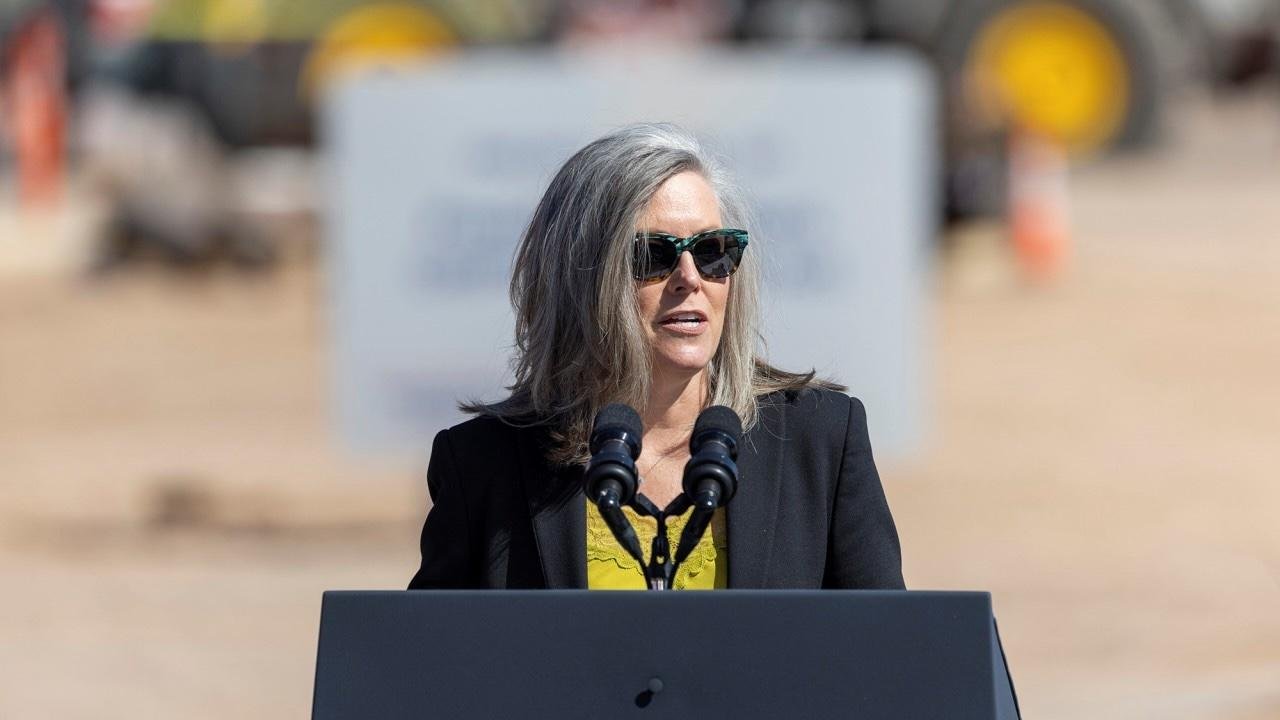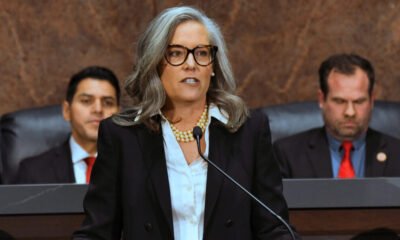arizona
Hobbs Rejects House GOP Budgets, Arizona Faces Threat of Government Shutdown

A contentious debate over Arizona’s budget is escalating, with a potential government shutdown looming. Democratic Governor Katie Hobbs recently vetoed two budget proposals put forth by Republican lawmakers in the state House.
The Arizona Senate reconvened Wednesday, despite earlier attempts to conclude the legislative session, for swift votes on the budget plans from the House. One proposal included extensive conservative priorities, while the other simply aimed to extend current funding.
Both measures garnered only Republican support, and their sponsors were aware of the likely vetoes. With June 30 marking the end of the fiscal year, both chambers must reach an agreement swiftly. If they fail to deliver a budget that Hobbs will sign, Arizona could face its first-ever government shutdown.
In a statement, Hobbs branded the House budget proposals as “sham” budgets, claiming they threaten public safety, undermine healthcare access, and neglect veterans. “These unserious budgets are wrong for the people of Arizona,” she asserted.
House Speaker Steve Montenegro expressed disappointment over the vetoes, pointing fingers at Hobbs for the impending shutdown. “The House has done its job, twice,” he stated, asserting that the House passed a balanced budget aimed at essential services, only to see it rejected.
Montenegro pledged that House Republicans would work to keep the government operational and shield taxpayers from political fallout. However, it was House Republicans who opted out of budget discussions weeks ago, leading to a $17.6 billion bipartisan agreement struck between the Senate and Hobbs.
Hobbs praised this bipartisan budget for its various allocations, including salary raises for state troopers, tax cuts for small businesses, and support for homeless veterans. In contrast, House GOP leaders criticized this plan, choosing to advance their own budget without consulting Hobbs or Senate Republicans.
Last week, Senate Republicans attempted to integrate some of the House Republican requests into their bipartisan budget, but these efforts quickly faltered. Ultimately, the Senate passed its bipartisan budget and moved to end the legislative session, pressuring the House for a vote.
The House responded with a continuation budget, designed to maintain current spending levels beyond June 30 while negotiations persisted. This move passed along party lines Tuesday.
Senate President Warren Petersen voiced frustration over the political maneuvering obstructing the bipartisan budget’s passage. “It takes leadership, competence, and courage to pass a bipartisan budget in divided government,” he emphasized.
Petersen, along with other Republican senators, faced backlash from within their party for engaging in negotiations with Hobbs. Some conservative members labeled them RINOs—Republicans in name only—for seeking collaboration.
Senator Jake Hoffman, a prominent right-wing figure, delayed the Senate’s voting process by proposing numerous amendments drawn from the House budget. His criticisms directed at Petersen and Chief Budget Negotiator John Kavanagh sparked renewed tension.
Petersen remarked on the increasingly toxic political landscape, noting, “Optics matter more than substance, and no actual work gets accomplished.” He urged for a cessation of performative politics to expedite essential functions.
In her veto letter, Hobbs called for an end to partisan theatrics and urged legislators to adopt the Senate’s bipartisan budget. “It’s time for House Republican leadership to move past their political stunts and work productively,” she stated, emphasizing the urgency of avoiding a government shutdown.


















